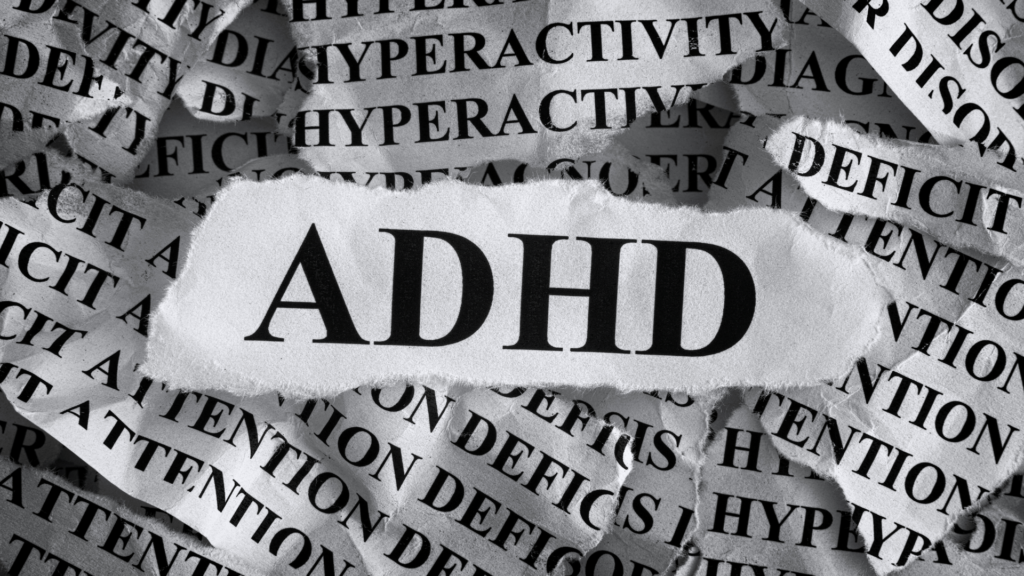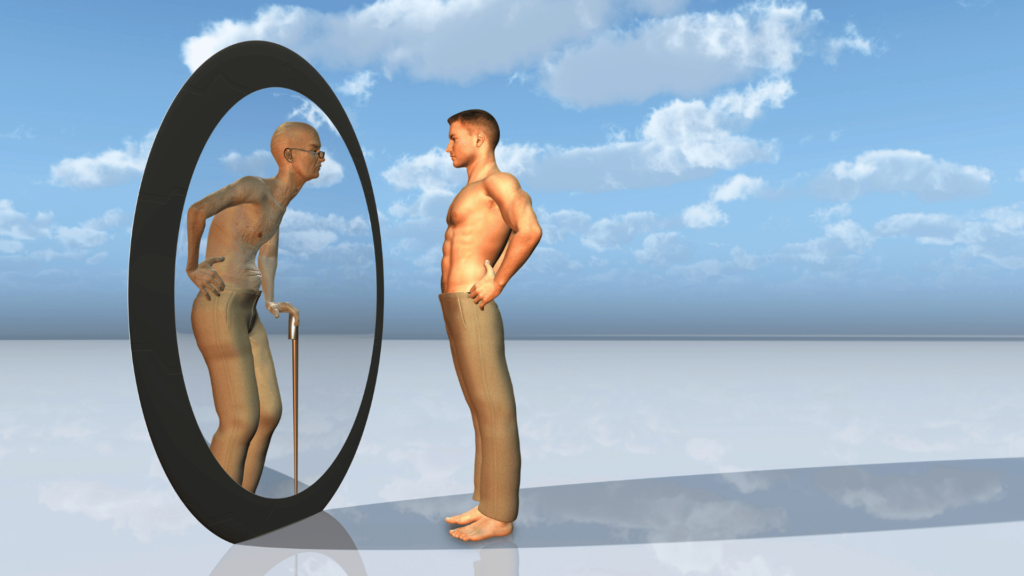Do You Struggle to Focus? It Might Be ADHD
Have you ever sat down to complete a task, only to find yourself zoning out within minutes? Or maybe you start something with full enthusiasm, but before you know it, your mind has wandered off to a hundred different places. If that sounds familiar, you might be dealing with more than just a wandering mind, it could be Attention Deficit Hyperactivity Disorder, better known as ADHD.

ADHD is a complex neurodevelopmental disorder that can manifest in various ways, impacting everything from work performance to relationships. What makes it particularly tricky is that many people don’t even realize they have it. But here’s the good news: once diagnosed, there are plenty of treatment options that can significantly improve your quality of life.
Curious about what ADHD symptoms look like? Let’s dive into some of the most common ones. From forgetfulness to fatigue, we’re breaking it all down in today’s discussion. So, buckle up, it’s going to be an eye-opening ride!
Symptoms of ADHD
1. Forgetfulness

We all forget things now and then. Maybe you’ve spent 10 minutes looking for your phone, only to realize it’s been in your hand the entire time. Or perhaps you’ve wandered into the kitchen, opened the fridge, and completely blanked on why you’re there. Welcome to the club, we’ve all been there!
But for someone with ADHD, forgetfulness isn’t just an occasional annoyance, it’s a persistent struggle. It’s missing important deadlines at work, forgetting to pay bills, or leaving loved ones feeling neglected because you keep forgetting to return their calls.
A study published in The Journal of Attention Disorders found that adults with ADHD exhibited significant deficits in working memory compared to those without the condition. This means that people with ADHD are more prone to forget important tasks, appointments, and even conversations.
One of the hardest parts? People often mistake this forgetfulness for carelessness or a lack of intelligence. In reality, ADHD makes it difficult to organize thoughts and retain information. The good news is that with the right strategies and professional support, managing this symptom becomes much easier.
2. Relationship Challenges

We tend to associate ADHD with school and work struggles, but did you know it can wreak havoc on your personal relationships too?
Picture this: You’re deep in conversation with your partner, and suddenly, BOOM, your brain decides to take a detour. Maybe you start thinking about what’s for dinner, or you get distracted by a noise outside. Before you know it, they’re staring at you, waiting for a response, and you have no idea what they just said. Awkward, right?
A study conducted by Dr. Russell Barkley, a leading expert in ADHD, revealed that individuals with ADHD are twice as likely to experience difficulties in maintaining long-term relationships.
ADHD can make maintaining relationships tricky. Forgetting birthdays and anniversaries, zoning out mid-conversation, or unintentionally interrupting people, these little habits can add up, leaving loved ones feeling unimportant or unheard. And it’s not just romantic relationships, friendships and workplace dynamics can suffer too.
The key? Open communication, patience, and learning techniques to stay present. And of course, seeking professional guidance can make a world of difference!
3. Fatigue

Think ADHD is all about boundless energy? Think again.
Yes, hyperactivity is a common symptom, but paradoxically, many people with ADHD also experience chronic fatigue. Imagine having a brain that’s constantly in overdrive, jumping from one thought to another, trying to focus, failing, trying again, it’s exhausting!
A 2018 study published in Neuroscience & Biobehavioral Reviews found that 40% of adults with ADHD experience chronic fatigue syndrome.
On top of that, sleep problems are common. Many people with ADHD struggle to fall asleep or stay asleep, leaving them feeling drained before the day even begins. And guess what? The more exhausted you are, the harder it is to focus, creating a vicious cycle.
If you find yourself battling fatigue day after day, it’s important to address the root causes, whether it’s sleep hygiene, lifestyle adjustments, or speaking with a healthcare professional about potential treatment options.
4. Disorganization

Let’s be honest, we all have that one junk drawer at home. But if your entire life feels like one giant junk drawer, ADHD might be at play.
Disorganization goes beyond a messy room. It’s struggling to keep track of responsibilities, constantly misplacing important items, and feeling overwhelmed by the simplest of to-do lists. At work, this can translate to missed deadlines, forgotten meetings, and frustrated colleagues who have to pick up the slack.
Also Read: 11 Super Benefits of Eating Ginseng Every Day
A 2019 study in Psychiatry Research highlighted that individuals with ADHD are three times more likely to face workplace termination due to poor organizational skills and time management difficulties.
At home, it might look like a pile of unopened mail, lost paperwork, or a closet that’s a graveyard for mismatched socks. While it might seem like just a bad habit, for those with ADHD, disorganization is often a result of executive dysfunction, a challenge in managing time, prioritizing tasks, and following through on commitments.
The good news? There are countless organizational strategies and tools that can help bring structure into your life. Color-coded calendars, reminder apps, and good old-fashioned sticky notes might just become your new best friends!
5. Substance Abuse

Not everyone with ADHD struggles with substance abuse, but a 2017 study from JAMA Psychiatry found that individuals with ADHD are twice as likely to develop substance use disorders like alcohol, nicotine, or other substances.
Why? One theory is that people with ADHD may turn to substances as a form of self-medication. When focusing is a constant struggle, some might find temporary relief in stimulants like caffeine, cigarettes, or even alcohol. Unfortunately, this can lead to a dangerous cycle of dependency.
If you or someone you know is struggling with substance use, it’s important to seek help. Therapy, support groups, and medical interventions can provide healthier coping mechanisms and help regain control.
6. Lack of Motivation

Ever have a to-do list that feels so overwhelming you just… don’t do anything at all?
That’s a common struggle for people with ADHD. Motivation isn’t about laziness, it’s about the way ADHD affects the brain’s ability to regulate dopamine, the neurotransmitter responsible for motivation and reward. When the brain doesn’t feel engaged or excited, it’s incredibly difficult to get started on tasks, even important ones.
A study from The Journal of Child Psychology and Psychiatry found that children with ADHD are 30% more likely to underperform academically due to a lack of motivation and focus.
This is especially noticeable in children with ADHD, who may struggle with schoolwork or chores, but adults experience it too, whether it’s procrastinating on work projects, avoiding household responsibilities, or pushing off important decisions.
The trick? Finding ways to make tasks more stimulating. Breaking big tasks into smaller steps, setting rewards, and using techniques like body doubling (working alongside someone else) can help boost motivation and keep you moving forward.
7. Anxiety

Have you been feeling anxious lately? Like your mind is a browser with way too many tabs open, and you can’t figure out which one is playing that annoying background music? Anxiety is a frequent companion to ADHD.
While ADHD and anxiety are distinct conditions, they often go hand in hand, feeding off each other in a never-ending loop. ADHD makes it hard to focus, complete tasks, or keep track of responsibilities, which leads to stress. And stress, in turn, fuels anxiety.
Research published in The Journal of Clinical Psychiatry shows that nearly 50% of adults with ADHD also have an anxiety disorder.
It’s like a vicious cycle, ADHD symptoms trigger anxiety, and anxiety amplifies ADHD symptoms. One moment, you’re overwhelmed by unfinished work, and the next, your racing thoughts spiral into worst-case scenarios. The good news? Recognizing the link between ADHD and anxiety is the first step toward managing both.
8. Low Self-Esteem

Imagine constantly feeling like you’re one step behind everyone else. No matter how hard you try, you always seem to be struggling to keep up. Sound familiar? ADHD has a sneaky way of chipping away at self-confidence. When focusing is a daily battle and deadlines keep slipping through your fingers, it’s easy to feel inadequate.
Many people with ADHD struggle with a persistent sense of underachievement. They set high expectations for themselves but feel like they never quite measure up. This ongoing frustration can lead to deep-seated self-doubt, making it hard to embrace challenges, take risks, or believe in one’s own abilities.
A study in The Journal of Adolescence found that teens with ADHD are at a higher risk for developing low self-esteem due to repeated experiences of failure and criticism.
Low self-esteem doesn’t just affect personal goals, it seeps into relationships, careers, and everyday interactions. You might avoid new opportunities because you’re afraid of failing. You might distance yourself from people because you feel like you’re not “good enough” for them.
But here’s the truth: ADHD isn’t a measure of intelligence or worth. With the right tools and support, you can break free from these negative thoughts and build a stronger sense of self.
9. Trouble Managing Time

Ever sat down to get one thing done, only to look up hours later and realize you’ve done a million other things, but not the one you actually needed to do? If so, welcome to the club. Time management is a huge challenge for people with ADHD.
Also Read: 9 Benefits Of Eating Peanut Butter Jelly Sandwich Every Day
Procrastination, missed deadlines, and poor time estimation are all common struggles. It’s not that you don’t care, it’s that your brain has a mind of its own when it comes to prioritizing. One moment you’re hyper-focused on a random task (like reorganizing your entire closet instead of finishing a work assignment), and the next, you’re scrambling to meet an urgent deadline that snuck up on you.
A study in PLOS ONE found that adults with ADHD are significantly more likely to struggle with procrastination and time mismanagement compared to neurotypical individuals.
Time blindness, a term often associated with ADHD, makes it difficult to judge how long tasks will take. You might underestimate the time needed for an important project, leading to last-minute stress and frustration. This can create chaos in both personal and professional life, but learning time management strategies can help bring a sense of structure to the madness.
10. Sensitivity to Rejection

Do you take criticism a little too personally? Maybe even the tiniest hint of disapproval feels like a punch to the gut? You’re not alone. Many people with ADHD experience what’s known as rejection-sensitive dysphoria (RSD), an intense emotional reaction to perceived rejection or criticism.
According to research from The Journal of Affective Disorders, rejection-sensitive dysphoria is commonly observed in ADHD patients, leading to heightened emotional distress.
Unlike regular sensitivity, RSD can be overwhelming. A simple piece of feedback might leave you feeling devastated for hours or even days. You might replay the moment in your mind, dissecting every word, wondering what you did wrong. Because of this, people with ADHD may avoid situations where they might face criticism, leading to missed opportunities or strained relationships.
It’s important to remember that RSD is not a reflection of your actual worth, it’s just your brain reacting in overdrive. With self-awareness and coping techniques, you can learn to manage these emotional swings and build resilience against rejection.
11. Impulsivity

Do you sometimes say things without thinking? Make snap decisions that you later regret? Impulsivity is one of ADHD’s most well-known traits. It can manifest in many ways, interrupting conversations, making risky choices, or struggling to resist temptations (hello, late-night online shopping sprees).
Some people blurt out answers before a question is even finished. Others make big, life-changing decisions on a whim. Impulsivity can also lead to riskier behaviors, such as reckless driving, overspending, or engaging in activities without considering long-term consequences.
A 2020 study in Cognitive Neuropsychology found that impulsivity in ADHD is linked to deficits in executive function, making it harder to control spontaneous decisions.
While impulsivity can create challenges, it’s not all bad. It can also lead to spontaneity and creativity, qualities that bring excitement to life. The key is learning to harness it in a way that serves you, rather than working against you.
12. Trouble Relaxing

Even when you have nothing on your to-do list, do you still feel restless? Like your brain just won’t shut off? People with ADHD often struggle to unwind, even when they have the chance to relax.
A 2021 study in Neuroscience & Biobehavioral Reviews suggested that hyperactivity in ADHD leads to increased difficulty in relaxation and higher stress levels.
It’s as if your mind is running on overdrive, constantly searching for something to do. Even in moments of downtime, there’s an underlying sense of unease, like you should be doing something productive. This inability to fully switch off can lead to burnout over time, making it difficult to recharge.
Sometimes, people with ADHD even feel guilty about resting. They feel like they should always be busy, always accomplishing something. But rest is just as important as productivity. Learning to embrace relaxation, whether through mindfulness, exercise, or structured downtime—, an make a huge difference in managing ADHD symptoms.
Conclusion
If you recognize these symptoms in yourself or someone you know, don’t panic. ADHD is challenging, but it’s also manageable. With the right combination of therapy, medication, and lifestyle adjustments, people with ADHD can thrive and lead fulfilling lives.
Seeking professional advice is always a good idea if ADHD symptoms are interfering with daily life. You’re not alone, and help is available.




